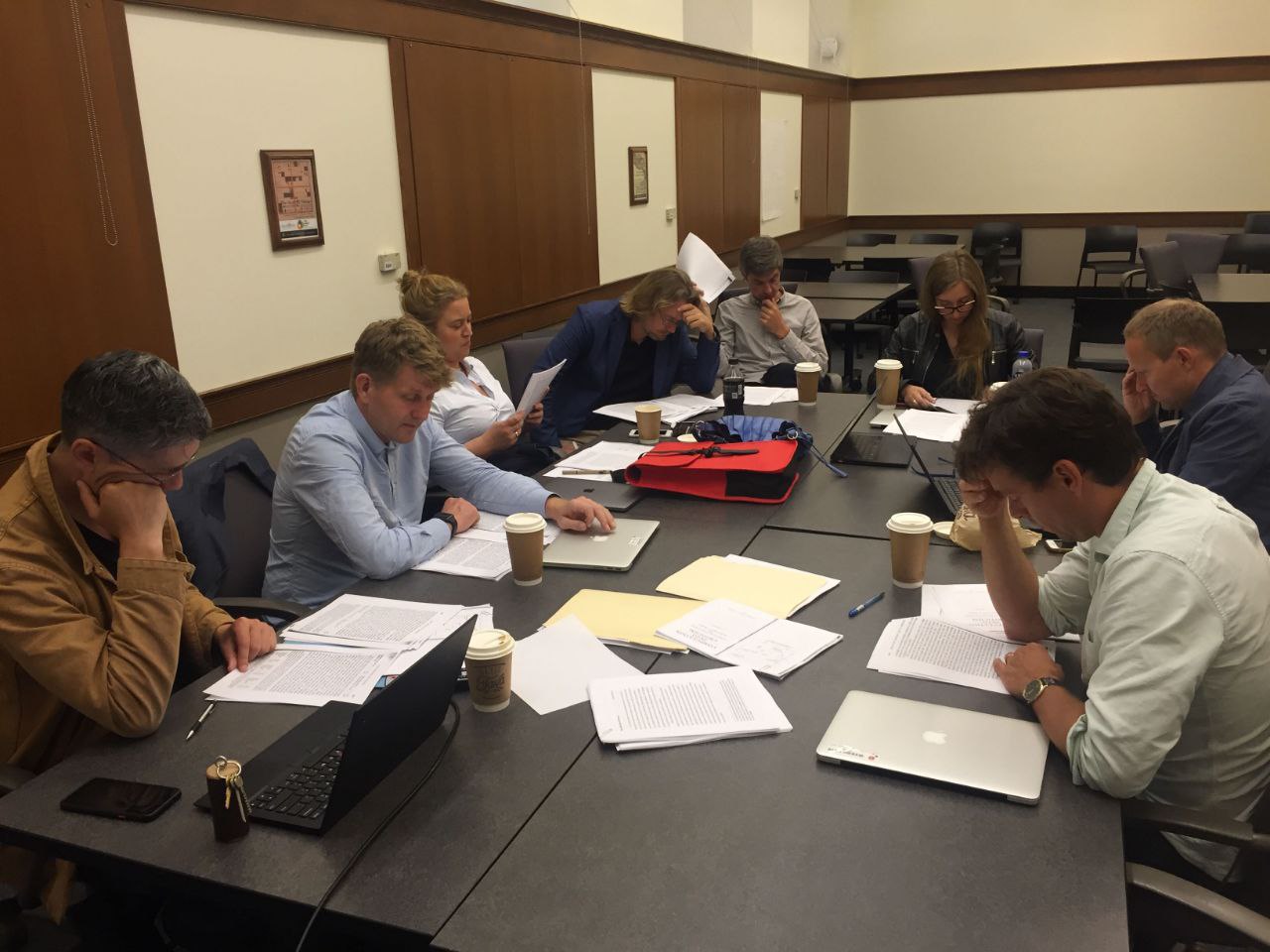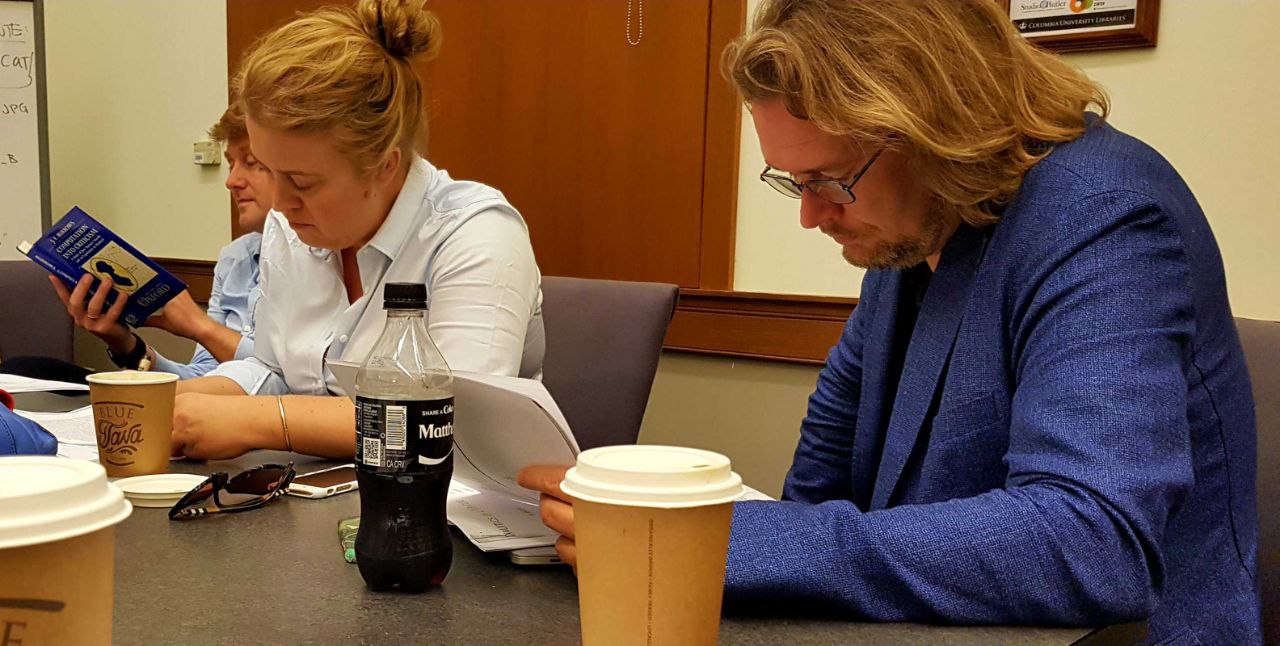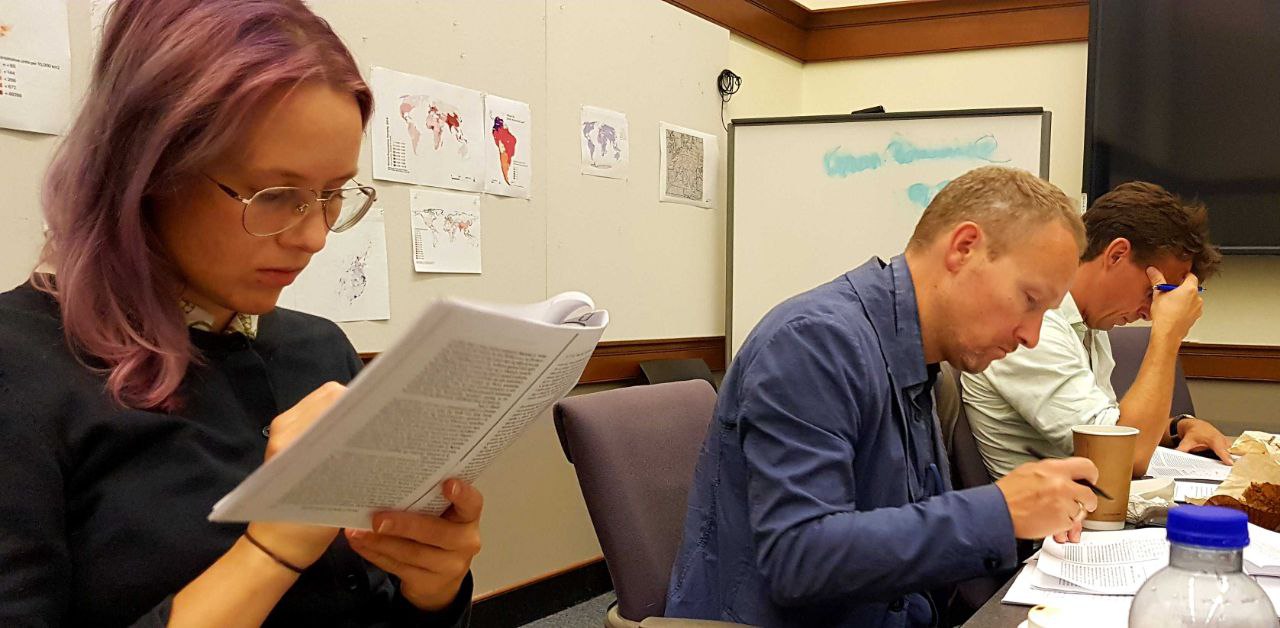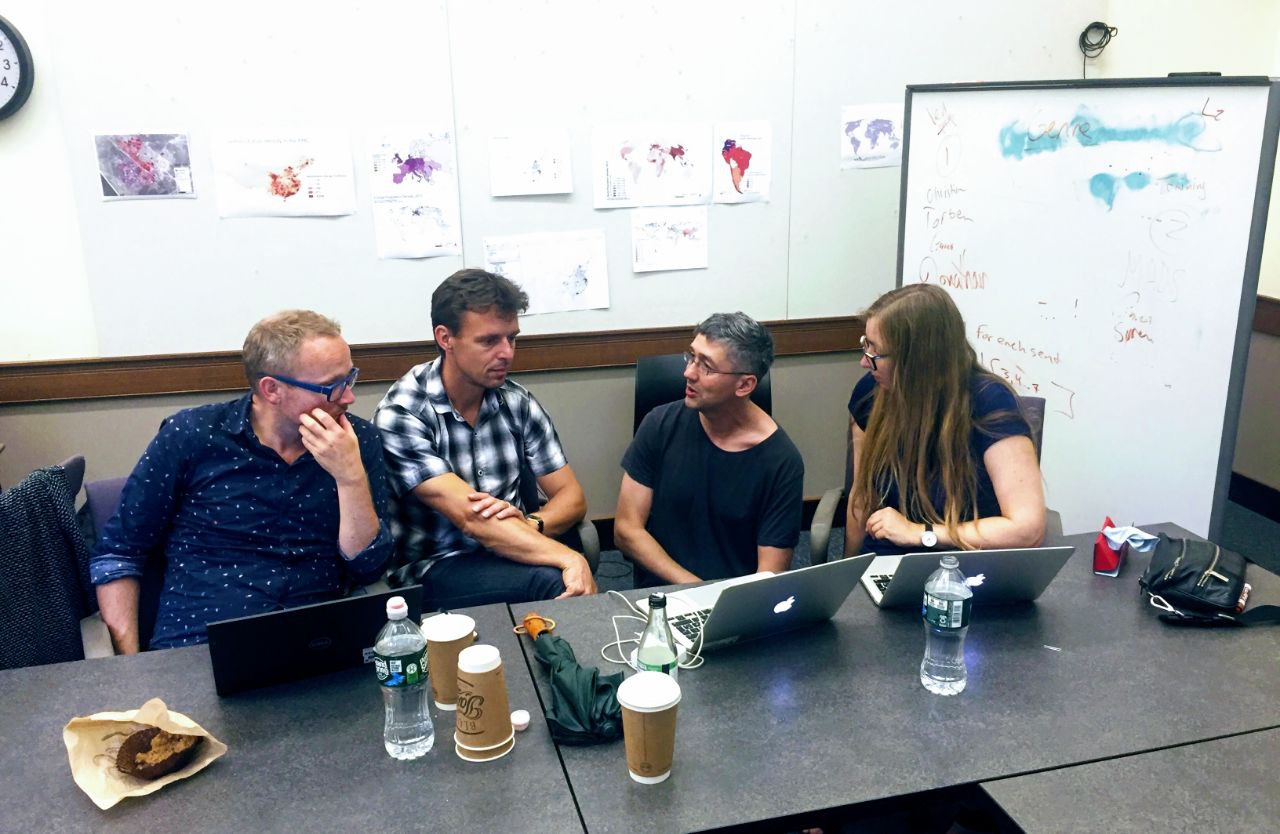Literary Modeling and Visualization
WORKSHOP on 10 Sep 2019 ⌖ Columbia University, Butler Studio 208bBringing together researchers from different academic and national traditions, this workshop explores the limits and the possibilities of formal literary analysis.
In collaboration between the Network for Digital Literary Studies, University of Southern Denmark; Department of English and Comparative Literature, Columbia University; Group for Experimental Methods in Humanistic Research; and Columbia University Libraries. Funded by the Independent Research Fund Denmark.
After a discussion on the history of formal analysis on Tuesday we will recreate some of the encountered studies on Thursday, using contemporary computational techniques. No prior experience is required.
For a glimpse into the proceedings, read “Adventures in Reproducing 19th Century Digital Humanities Projects” by Jonathan Reeve!
List of participants
- Sofie Kluge (University of Southern Denmark)
- Kristoffer Nielbo (Aarhus University)
- Dennis Yi Tenen (Columbia University)
- Christian Dahl (University of Copenhagen)
- Jens Bjerring-Hansen (University of Copenhagen)
- Søren Frank (University of Southern Denmark)
- Max Roald Eckardt (Aarhus University)
- Torben Jelsbak (University of Copenhagen)
- Anna Lawaetz (Royal Library)
- Mads Rosendahl Thomsen (Aarhus University)
Program
| Sept 10 | |
|---|---|
| 10:00 | Introduction to xpMethod |
| 11:00 | Reading Circle1,2,3 |
| 13:00 | Lunch |
| 14:00 | Campus Tour |
| 15:00 | Discussion |
| 18:30 | Dinner at Massawa |
- “Units of Thought and of Expression of Thought” and “The Weight of Styles” in the Analytics of Literature (1893) by L.A. Sherman, pages 281–302.
- Burrows, John F. “Chapter 5: Correlation Matrices and the Interrelationship of Characters.” In Computation into Criticism: A Study of Jane Austen’s Novels and an Experiment in Method, 81–106. New York, NY: Clarendon Press, 1989.
- Underwood, William E. “Genre Theory and Historicism.” Cultural Analytics, no. Oct 25 2016 (October 25, 2016).
| Sept 11 | |
|---|---|
| 10:00 | A visit with CUNY Digital Humanities Initiative, lunch with Matt Gold |
| Sept 12 | |
|---|---|
| 9:30 | Case Study: Text Reuse in Pulp Fiction |
| 10:30 | Text Analysis in Python Workshop |
| 13:00 | Lunch |
| 14:00 | Text Analysis in Python Workshop |
| 16:00 | Roundtable: Limits and Possibilities of Computation |
About the network
Network for Digital Literary Studies unites people from four Danish research institutions and is directed by associate professor Sofie Kluge (Department for the Study of Culture, University of Southern Denmark).
In the field of literary studies, digitalization presents a whole array of exciting new scientific perspectives. Firstly, it famously possibilities analysis of larger text corpora; secondly, it makes possible the analysis of literary texts in a broader cultural field to which social media, among other forms of communication, also belong; finally, it has clear pedagogic and communicative advantages. Yet, although earlier skepticism has today been broadly replaced by interest in the possibilities that digital methods and tools open up in literary research, Danish literary scholars have not systematically pursued these possibilities nor has the potential of digitalization to transform traditional literary scholarship been fulfilled. Much less do existing digital tools and resources reach students of literature at Danish universities.
Network for Digital Literary Studies unites Danish literary researchers with software developers and international spearheads in order to 1) develop concepts for digital literary research and 2) revise the central elements of traditional literary studies from the perspectives opened up by digitalization.
In continuation of both these aims, our work is directed at developing concepts for digital literary studies; presenting prototypes, pilot projects and cases for digital literary research; and quality improving existing literary research projects with a digital profile.



